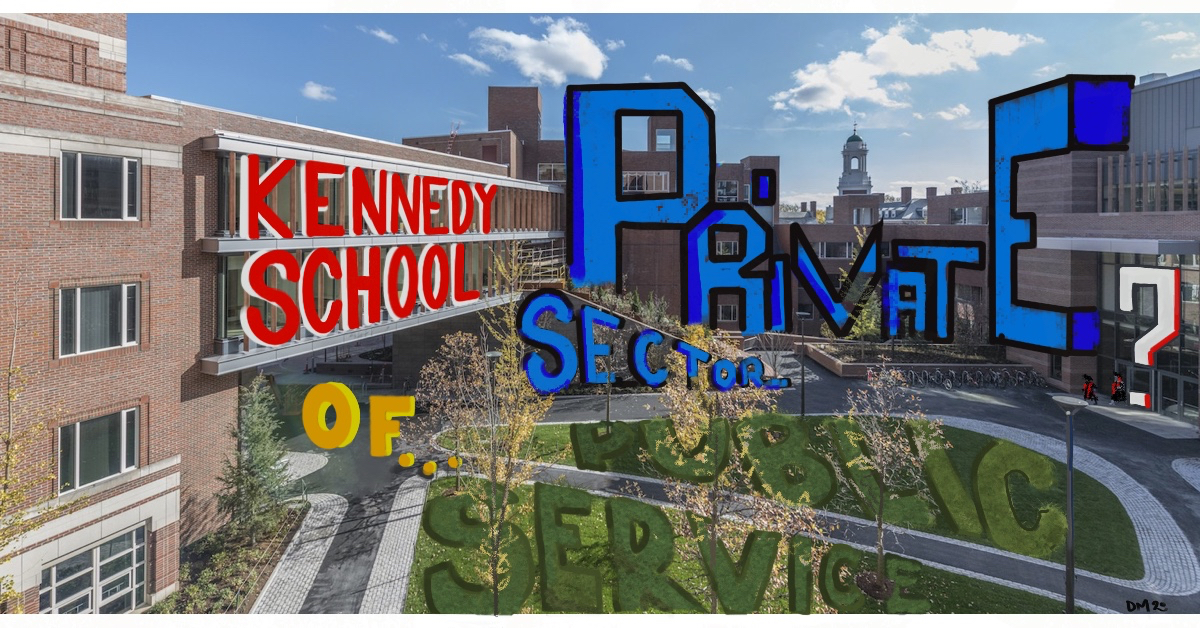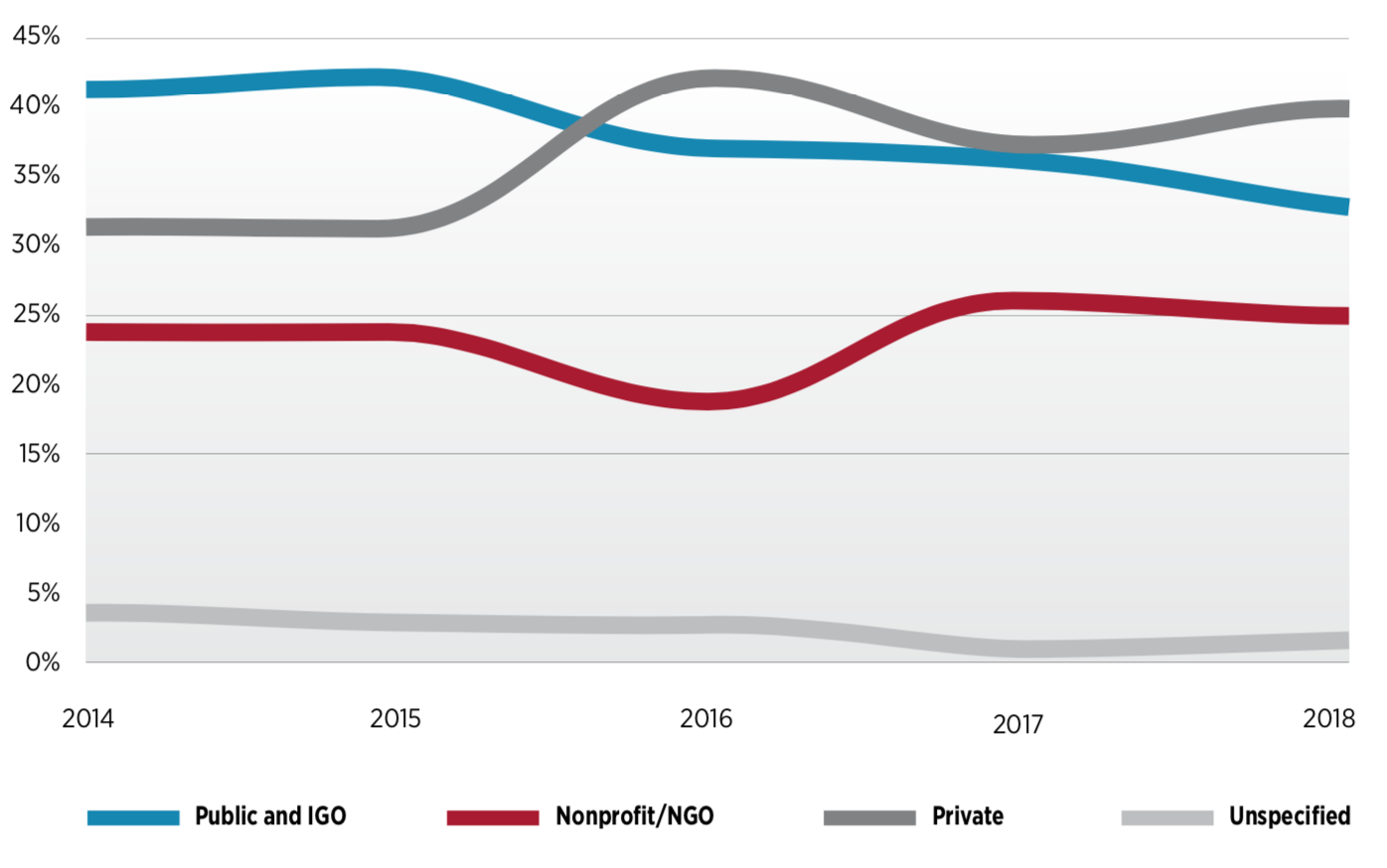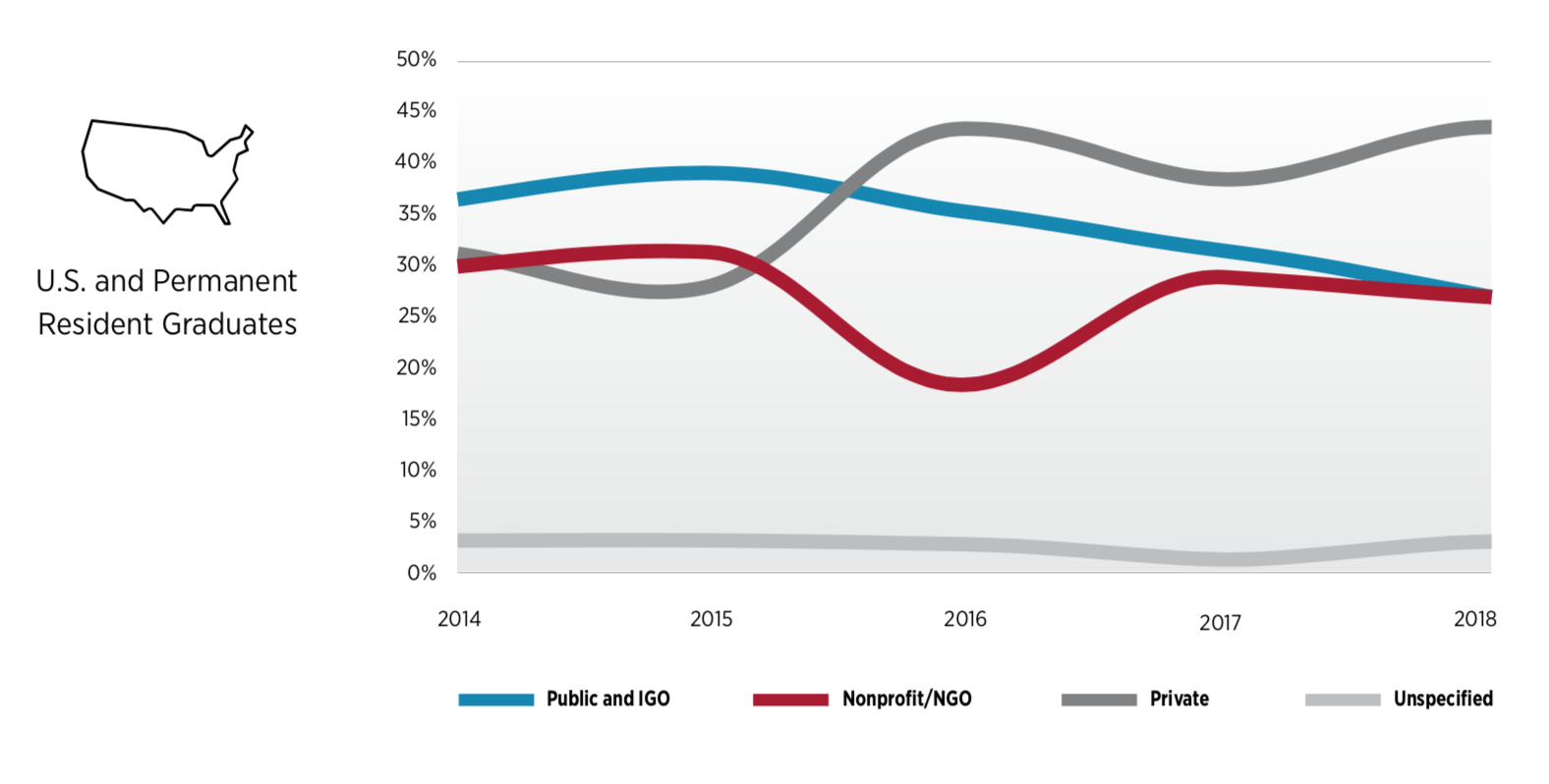Original Cartoon by Drew Madson. See more of his illustrations here. Instagram @drew1drew2drewyou
The irony underlying the Kennedy School’s core pursuit is evident in its very name stone. The light brown, etched marble stone, proudly boasts Harvard Kennedy School as the headline. But below that is a subtle, almost invisible, outcasted subtext, conceding it as the “John F Kennedy School of Government”. It is a half-hearted attempt to cling to the traditional narrative of a commitment to public service by preparing students for the public sector.
That narrative, however, fails factual scrutiny. Currently, HKS sends almost half of its graduates to the private sector. Not so public, after all.
HKS must revisit and redefine some of its founding principles and definitions, especially that of the term ‘public service’. Since its inception in 1936, the stated mission of HKS has been to improve public policy and public leadership across the United States and around the world. From then to now, the definition and scope of what entails public service has expanded beyond simply government. This change is evidenced in the latest employment snapshot published by the Office of Career Advancement (OCA) at HKS.
For 2018, HKS graduates were employed in the following sectors: Public (33%), NGOs (25%) and Private (40%). Looking at the trend over the last five years, there is a noticeable decline in the preference for public sector jobs and a proportional increase in the preference for private sector jobs. Moreover, the decline is even steeper for students who are US citizens or Permanent Residents.
Employer preference by sector: all students (left), U.S. and Permanent Residents (right). Source: OCA, 2018
This recruitment preference holds true across all programs at the Harvard Kennedy School. The two-year Master in Public Administration (MPA) program, in particular, is a significant outlier when it comes to this analysis. For the MPA class of 2018, the recruitment for private sector jobs was the highest, at 72%.
This is a testament to the fact that HKS needs to revisit the meaning of public service and acknowledge more openly the ‘private’ dimension of its mission. Calling it a school of government signals a pure public vision that is incompatible with the truth.
For an educational institution whose foundation was premised on the need for improved, professionalized public service, HKS walks a fine line in cautiously dissociating the role the private sector plays in the pursuit of its vision and mission – a narrative that is almost absent on campus. In fact, it is hard to miss the ‘commitment to public and public service’ lullaby once you enter the confines of HKS, while the word “private” is ascribed, with disdain, to the universe across the bridge.
This is both misguided and misleading, given the roles and positions that HKS prepares students for – in both the public and private sector. The data clearly shows that the private sector is central to the vision and mission of HKS. It is hard to deny, therefore, that HKS has broadened its definition of public service well beyond its foundational principles.
The Kennedy School’s pitch to students, both domestic and international, thrives on the notion that it prepares public leaders of tomorrow. In the process of doing this, it often oversells the ‘public’ part and mostly underplays and under-emphasizes the significant role of the private sector. Obsession with this narrative of public service requires a sincere introspection, rethinking, and reframing, in light of what the data says.
Walking on this double-edged sword creates a dissonance that is manifested in the shy, apologetic subtext of the “John F Kennedy School of Government”, and hurts the credibility of the school. It must own the narrative of the private sector being an equal ally in the pursuit of its mission. Once it embraces what it truly is, perhaps the Harvard Kennedy School can proudly boast a bold, new subtext as the “John F Kennedy School of Public Service”.
The Citizen is the independent, official newspaper of the Harvard Kennedy School. Sign up for our mailing list here so you never miss an article.
Our mission is to seek the full truth on university and community affairs. In doing so, we challenge assumptions and spark meaningful dialogue on the identity and ideals of HKS. We strive to help the school achieve its own goal: allow people to leave safer, freer, and more prosperous lives.
If you are interested in contributing to The Citizen, send us an email at the_citizen@hks.harvard.edu.


